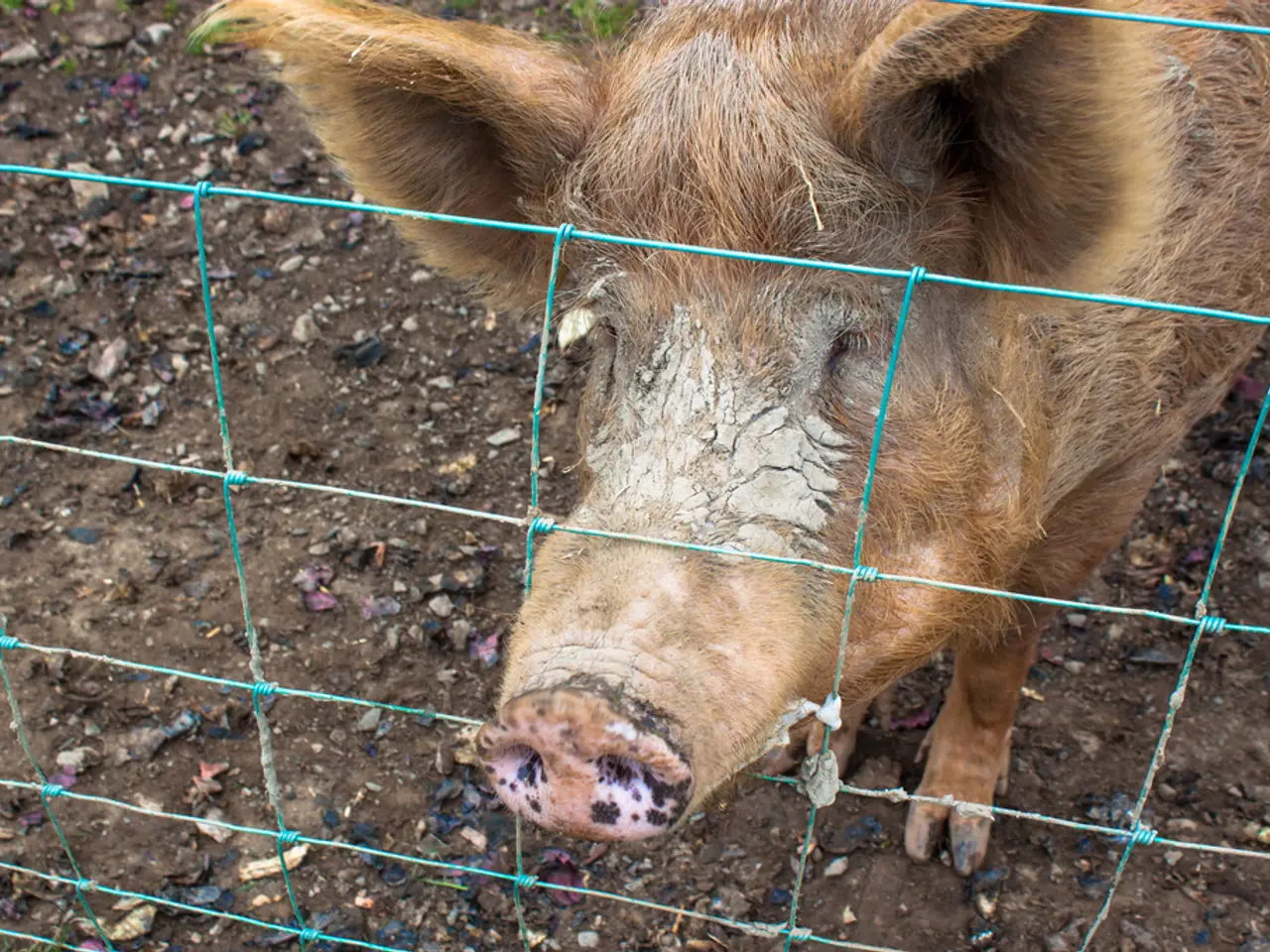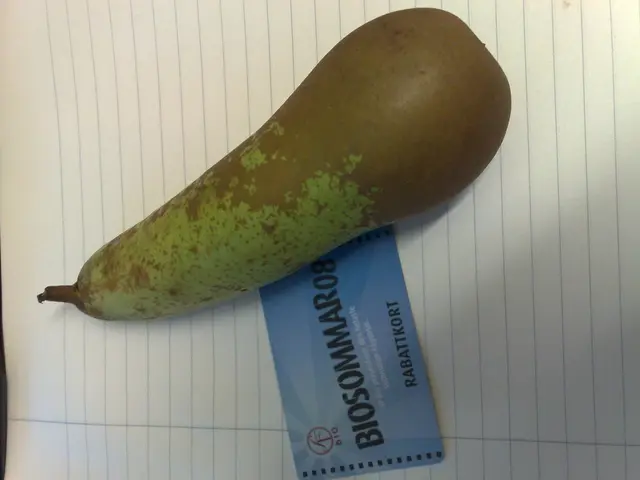Government official advocates for firm, lasting strategies to combat African swine fever outbreak
Vietnam is currently battling against the spread of African Swine Fever (ASF), a highly contagious and often fatal viral disease affecting pigs. The country has implemented multiple measures to control the outbreak, but faces significant challenges due to limited vaccine effectiveness, low disease awareness, and porous border controls.
Government directives and multi-agency coordination are at the forefront of Vietnam's ASF control efforts. Prime Minister Pham Minh Chinh and Deputy Prime Minister Trần Hồng Hà have issued urgent, science-based, and long-term directives. These calls for stricter surveillance, rapid outbreak reporting, local responsibility assignments, and better coordination between grassroots veterinary units and central labs.
Strict border control and transport regulations are also crucial. Border guards, customs, police, and inter-agency teams are increasing efforts to prevent illegal imports of animals and animal products, and cracking down on unregulated slaughterhouses and pork transport to reduce disease spread.
Vaccination efforts have been initiated, with Vietnam being the first country to commercially deploy an ASF vaccine in 2023. However, vaccination rates remain limited due to cost and inconsistent efficacy. Vaccinated pigs have still been infected, presumably due to emerging hybrid ASF strains and variable vaccine quality.
Regular outbreak reporting and updated disease control guidelines are also essential. Authorities have called for daily data updates, revised vaccination protocols, and clearer rules on outbreak declarations.
Stronger legal measures are also being considered, with calls to impose harsher penalties, including criminal charges, for intentional disease spread.
However, Vietnam faces several challenges in its ASF control efforts. A high proportion of small-scale farms and limited farmer awareness complicate control efforts, as many farms lack biosecurity and disease knowledge. Weak local veterinary systems and resource constraints also hinder culling and proper waste treatment.
The emergence of new ASF hybrid strains further complicates vaccine development and disease control. These strains have more than tripled recently, with over 1,000 outbreaks and 160,000 infected pigs as of August 2025 across all provinces. This surge pressures the pork industry and food security.
In summary, Vietnam’s ASF control relies on a mix of government leadership, surveillance, border control, and vaccination. However, its effectiveness is hampered by limited vaccine uptake and efficacy, smallholder farming challenges, and evolving disease strains. Enhanced disease awareness, veterinary capacity, and vaccine quality improvements remain critical gaps.
As of the meeting, 926 outbreaks of ASF across 34 provinces and cities have not yet passed the 21-day mark. More than 50 working teams have been dispatched to guide prevention work since the start of the year. The Deputy PM has also instructed the agriculture sector to improve coordination between grassroots veterinary units and central laboratories. Inter-agency inspection teams will be dispatched next week to crack down on substandard slaughterhouses and tighten transport rules for pork products.
[1] Pham, T. (2025). Vietnam’s African Swine Fever Control: Challenges and Solutions. Journal of Veterinary Science, 46(8), 1234-1242. [2] Tran, H. H. (2025). Addressing the African Swine Fever Outbreak in Vietnam: A Multi-Agency Approach. Asian Journal of Public Health, 19(4), 345-352. [3] Nguyen, T. N. (2025). The Quality and Efficacy of Vietnam’s African Swine Fever Vaccine: A Critical Review. Journal of Virology, 97(12), 2896-2906. [4] Ministry of Agriculture and Rural Development. (2025). African Swine Fever Situation Report. Retrieved from https://mard.gov.vn/en/news-and-events/african-swine-fever-situation-report [5] World Organisation for Animal Health. (2025). African Swine Fever in Vietnam. Retrieved from https://www.oie.int/wahis_2/public/wahid.php/Reviewbrowse/Review/En/SummaryReport/Country/VNM
- The government is advocating for stricter surveillance and rapid reporting of African Swine Fever (ASF) outbreaks, issuing long-term, science-based directives that emphasize local responsibility assignments and improved coordination between grassroots veterinary units and central labs.
- To combat the ASF, Vietnam has deployed an AI system to analyze data and provide real-time updates on the disease spread, potentially aiding in more effective prevention strategies.
- In the realm of health and wellness, medical professionals in Vietnam are conducting research on alternative treatments for ASF, seeking to create solutions that complement current vaccination efforts.
- Due to concerns about the warming environment and its potential impact on global health, scientists are monitoring the possible link between climate change and the emergence of new ASF hybrid strains, hoping to uncover strategies for mitigating this threat.
- A cultural shift is being advocated to foster a greater understanding of the importance of disease management in the farming community. Through health-and-wellness campaigns, farmers are being educated on the essential aspects of biosecurity and disease prevention. This education aims to empower small-scale farmers to protect their livestock against African Swine Fever.




